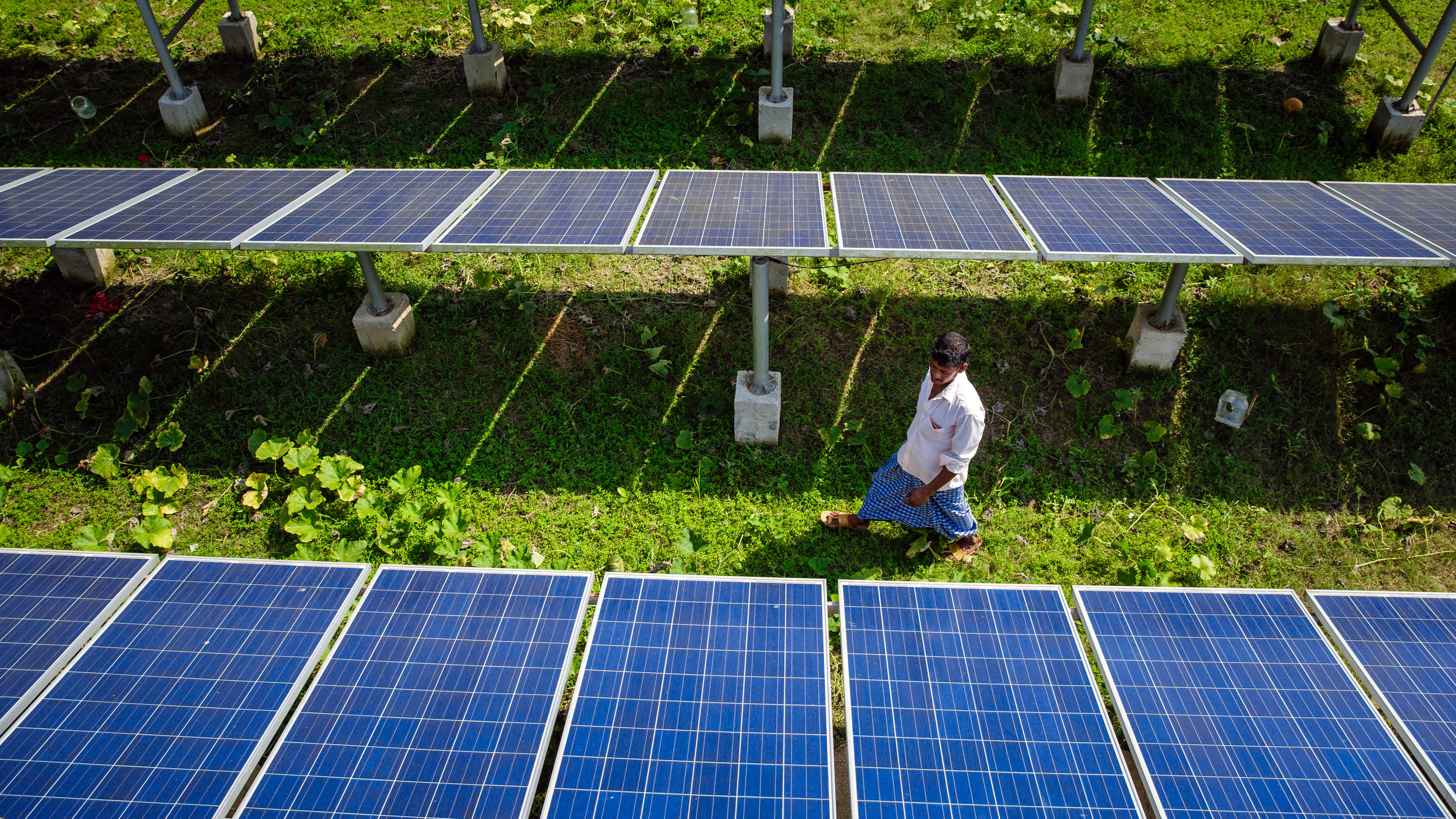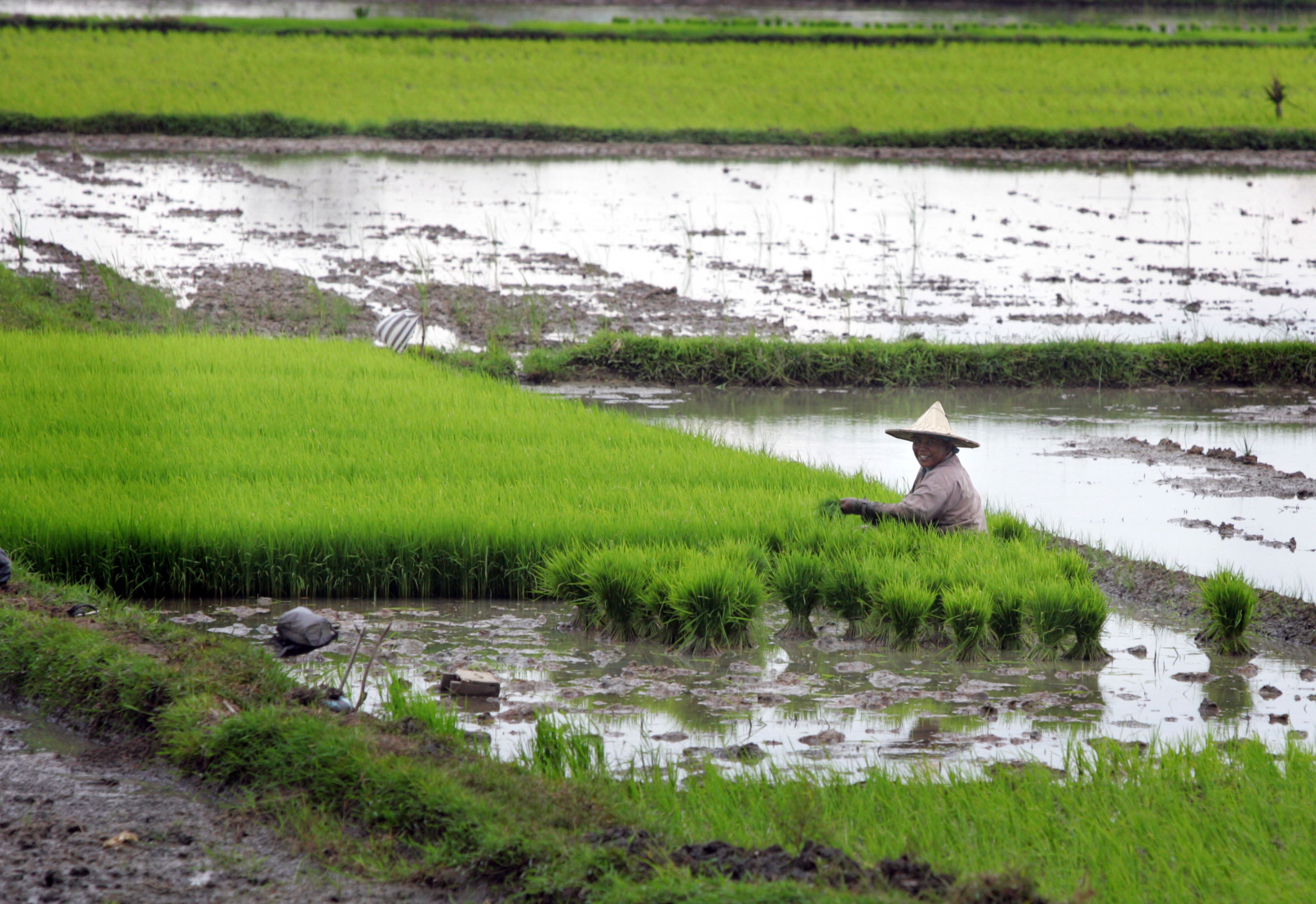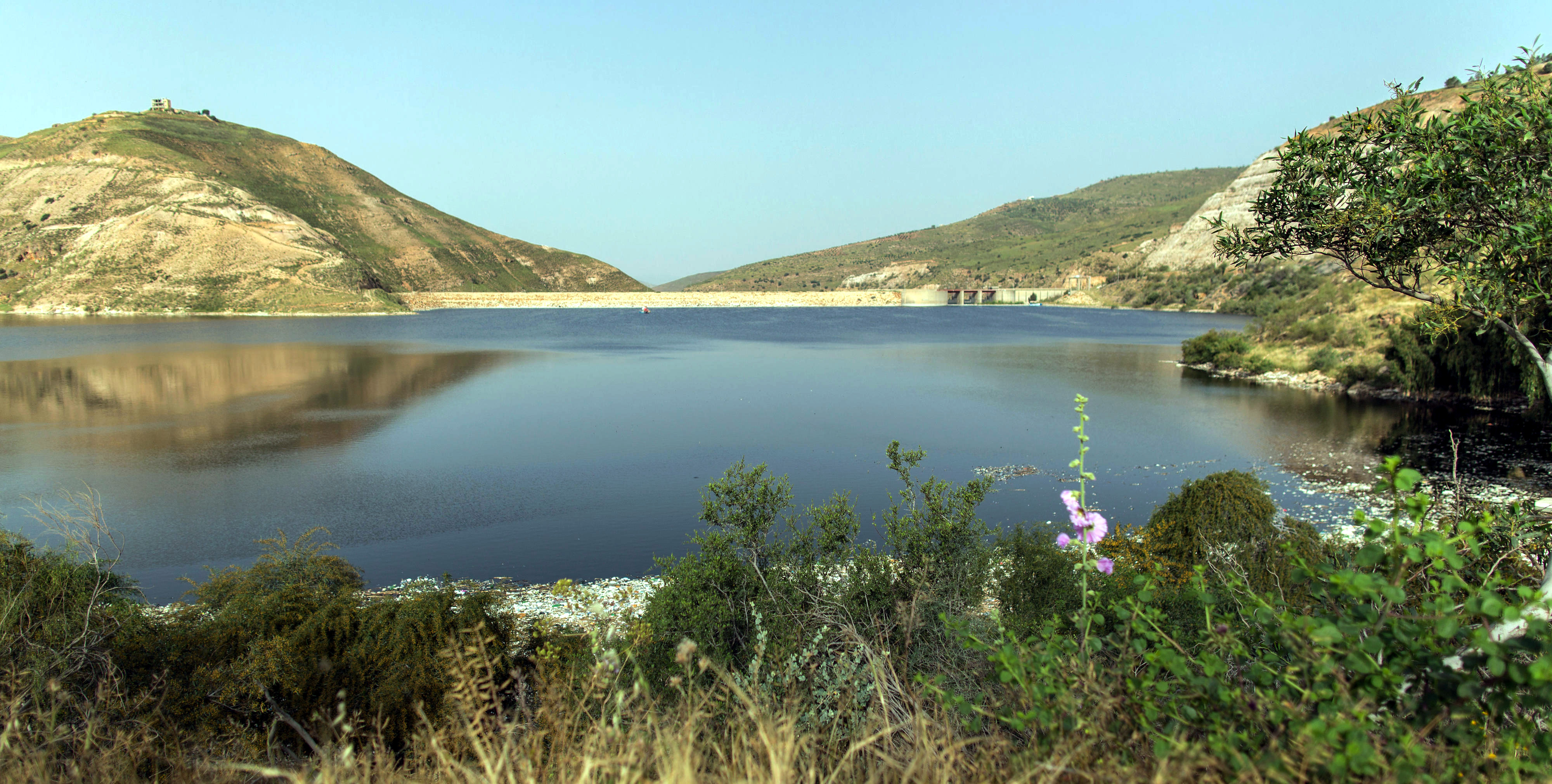Solar system to power a solar-powered pump for irrigating fields in Bangladesh
Copyright© Thomas Trutschel/photothek.net
Water, energy and food security – the nexus perspective
By 2050, an estimated 40 per cent of the world's population will be living in water-scarce areas. Simultaneously, global water demand will grow by up to 30 per cent as a result of climate change and population growth. Demand for food will grow significantly as well – and agriculture is already the largest single user of water. In the energy sector, too, the replacement of fossil fuels by hydropower and biofuels is leading to increased demand for water.
On the other hand, renewable energy also helps to resolve water problems, for instance through the use of solar-powered water pumps in agriculture and of tidal energy in seawater desalination plants.
The protection of ecosystems and prevention of overexploitation of water resources requires sustainable water management with effective control mechanisms.
Nexus approach Balancing interests, preventing conflict
As the three areas are so closely interrelated, the BMZ pursues what is known as the nexus approach. The core idea is that, given the scarcity of resources and the shortage of supplies, there is a need for looking at all three sectors when planning and implementing activities related to water, energy and land management, to the provision of services for the people, and to the protection of the environment. This involves cooperation between experts from all three sectors on an equal footing, with a view to developing harmonised policies and equitable, sustainable solutions. This dialogue needs to include all stakeholder groups from politics, the private sector and civil society.
The purpose of the nexus approach is to organise the use of resources in such a way as to optimally reconcile the interests of the three sectors and of the various stakeholders, reduce supply risks, prevent conflict, conserve ecosystems and respect planetary boundaries.
Political dialogue and local implementation
The nexus approach was first put on the international agenda at the Bonn 2011 Nexus Conference, which was hosted by the German government. The approach is supported by major development players, for instance the European Union, the World Bank, the Food and Agriculture Organization of the United Nations (FAO), and the International Union for Conservation of Nature (IUCN).
On behalf of the BMZ and the EU, the Deutsche Gesellschaft für Internationale Zusammenarbeit (GIZ) implemented a programme to support regional nexus dialogues in Latin America, the Middle East and North Africa, and the Niger basin. The focus was on firmly establishing the nexus approach in national and regional policies and aligning investment decisions with that approach.
There was an additional project in Mali, Niger and Chad that explored ways in which cooperation across the areas of water, energy and food security can help to enhance security and climate resilience in conflict regions.
Both programmes were successfully completed in October 2023. Information about their outcomes can be found on the Nexus Resource Platform (External link). This independent platform was created as part of the programme in order to provide a global knowledge hub. It enables experts, researchers and political decision-makers to think outside of individual sectors and secure universal and equitable access to water, energy and food.
As at: 13/06/2024


